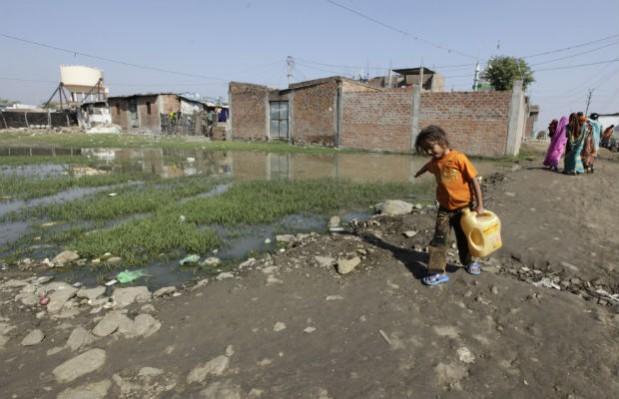
The Bhopal gas tragedy continues to make lives of people living in the affected areas miserable even after more than three decades. Now, the groundwater is becoming increasingly dangerous to consume.
On the intervening night of December 2-3, 1984, there was a gas leak from a pesticide plant owned by Union Carbide India Limited (UCIL) in Bhopal, Madhya Pradesh.
Considered to be one of the world's worst industrial disasters, nearly 4,000 people had died on that night because of gas poisoning and thousands have died since due to diseases caused by the gas, residue of which still contaminates the affected area.
Organisations set up by survivors of the tragedy have lamented the lackadaisical attitude of the Centre as well as the successive state governments towards the contamination of the groundwater in the city.
The leaders of these organisations have said that even the Supreme Court has acknowledged the fact that the groundwater poisoning is spreading and now 20 more communities are on the verge of being added to the list which already has 22 communities which have to make do with poisoned groundwater.
Supreme Court has ordered a team from the Lucknow-based Indian Institute of Toxicology Research to collect groundwater samples from 20 more communities. The team is expected to visit the affected parts of the city on Friday, June 15.
The apex court has also directed the Municipal Corporation to supply treated drinking water to five of the 20 communities which lack this facility.
Talking to The Pioneer, Rashida Bee, president, Bhopal Gas Peedit Mahila Stationery Karmchari Sangh said: "Are the central and state governments waiting for the poisons to spread all over the city before they begin to act? Going by the orders of the Supreme Court, the number of poisoned communities has trebled in the last 14 years. Yet the governments have not taken a tiny step to stop the spread of chemicals that damage the brain, lungs, kidneys and liver and cause cancers and birth defects."
"The surest way to stop the spread of poisons would be to excavate and contain the poisonous factory waste that remains buried underground and that is the source of the ongoing contamination. Instead of digging the soil and taking out the poisonous waste, the government is actively contemplating covering the buried waste by building a memorial to the gas disaster over them." Nawab Khan, a member of Bhopal Gas Peedit Mahila Purush Sangharsh Morcha, told The Pioneer.

















